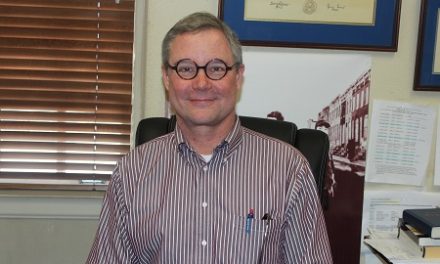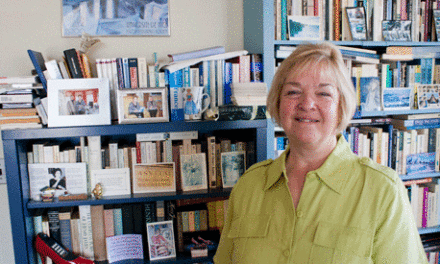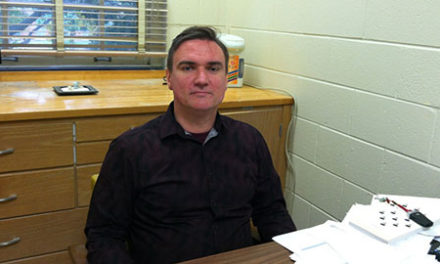By Collette O’Neal (Whetstone staff writer)
When Dr. Elizabeth Espadas began teaching at Wesley in 1981, she didn’t imagine that she would make such an impact.
“It’s hard to see the impact you make when it’s a permanent change in a person,†she said. “Sometimes students appreciate what you offer them as you teach, and other will appreciate it later.â€
After almost three decades at the college, Espadas will be retiring at the end of the fall semester.
She is looking forward to it.
Espadas grew up in Florida, and knew from an early age that she wanted to teach.
After receiving her Doctorate from the University of Illinois, she taught at the University of Delaware and at Franklin and Lincoln universities.
When she moved to Newark, she applied to several different schools.
She picked Wesley because she saw it as a wonderful opportunity close to home.
During her first few years of teaching, she wrote grants and became the coordinator of Fulbright, the largest foreign exchange program for students and faculty. She met other professors from around the world.
“It’s always interesting to meet people with different perspectives from you,†Espadas said.
She also enjoys traveling.
Espadas has been to Spain, Mexico, Puerto Rico, Ecuador, Peru, Argentina, Costa Rica, Machu Picchu, England, France and Italy.
Machu Picchu was her favorite.
“The beauty of the area and the many questions that place leaves you with is amazing,†she said. “The fact that it was unknown for so long is intriguingâ€
In addition to racking up frequent flyer miles, Espadas has written a book called A lo largo de una escritora: Ramon J. Sender guilla bibliographia.
Written in Spanish, it is a bibliographic guide to Ramon Sender, a journalist and painter.
Espadas is grateful for the years that she has taught at Wesley because of the opportunities she was given. She says she gained more than she had ever hoped.
“You probably learn more than you teach,†Espadas said. “The whole academic world is one about constant growth.â€
In addition to teaching Spanish, she has taught Contemporary Literature, Latin American history and The Latino Experience in the U.S.
“I am pleased to see the growth and stability of the student body and have enjoyed seeing students apply the Spanish language into their majors,†she said.
She hopes that Wesley will adopt a Spanish major that would require study abroad.
During retirement, Espadas hopes to travel more and spend more time in Spain.




